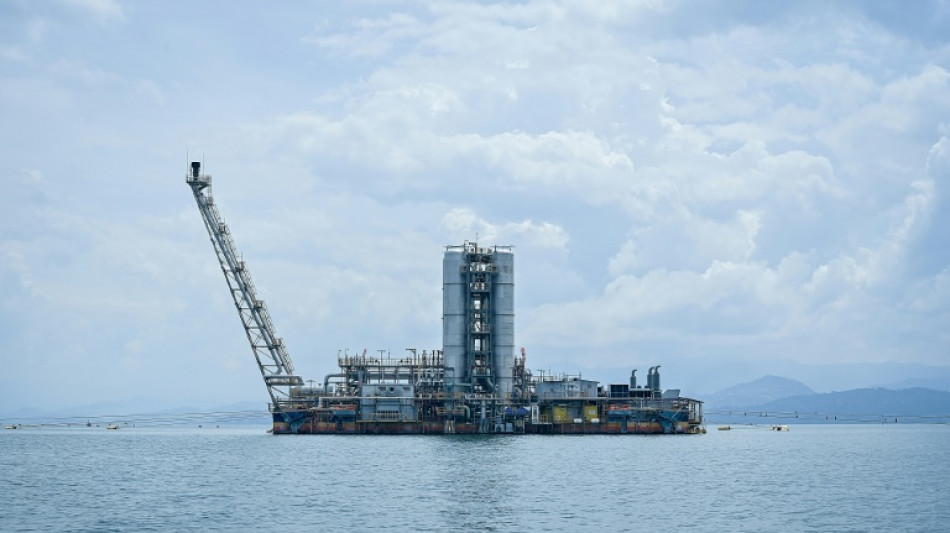
-
 Rams survive Panthers scare to advance in NFL playoffs
Rams survive Panthers scare to advance in NFL playoffs
-
Rallies across US after woman shot and killed by immigration agent

-
 Egypt dump out holders Ivory Coast as Nigeria set up AFCON semi with Morocco
Egypt dump out holders Ivory Coast as Nigeria set up AFCON semi with Morocco
-
Rosenior salutes 'outstanding' start to Chelsea reign

-
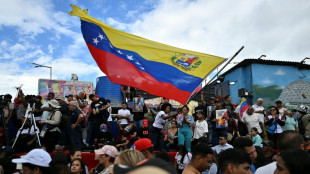 Maduro loyalists stage modest rally as Venezuelan govt courts US
Maduro loyalists stage modest rally as Venezuelan govt courts US
-
Byrne late penalty fires Leinster into Champions Cup last 16 after 'ding-dong' battle

-
 Rosenior makes flying start as Chelsea rout Charlton in FA Cup
Rosenior makes flying start as Chelsea rout Charlton in FA Cup
-
Rallies across US against shooting of woman by immigration agent

-
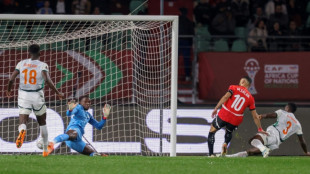 Salah closer to AFCON glory as Egypt dethrone champions Ivory Coast
Salah closer to AFCON glory as Egypt dethrone champions Ivory Coast
-
O'Neil ends 'crazy three days' with Strasbourg cup canter
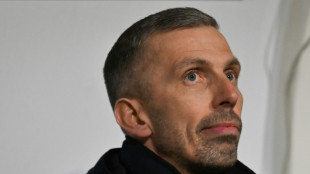
-
 Mitchell leads Cavs over T-Wolves
Mitchell leads Cavs over T-Wolves
-
O'Neil ends 'crazy few days' with Strasbourg cup canter
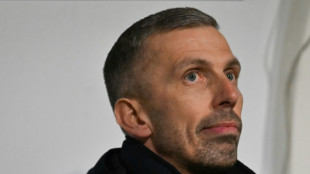
-
 Argentina wildfire burns over 5,500 hectares: governor
Argentina wildfire burns over 5,500 hectares: governor
-
Byrne late penalty fires Leinster into Champions Cup last 16

-
 Roma beat Sassuolo to close in on Serie A leaders Inter
Roma beat Sassuolo to close in on Serie A leaders Inter
-
Villa's FA Cup win at Spurs leaves Frank on the brink

-
 Osimhen focused on Nigeria glory not scoring record
Osimhen focused on Nigeria glory not scoring record
-
Undav calls shots as Stuttgart thump Leverkusen

-
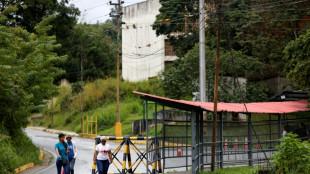 Venezuelan prisoners smile to hear of Maduro's fall
Venezuelan prisoners smile to hear of Maduro's fall
-
Thousands of Irish, French farmers protest EU-Mercosur trade deal
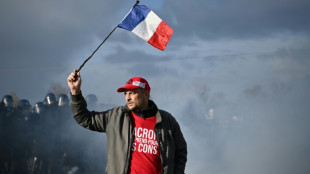
-
 Kiplimo captures third straight world cross country title
Kiplimo captures third straight world cross country title
-
Osimhen leads Nigeria past Algeria into AFCON semi-finals

-
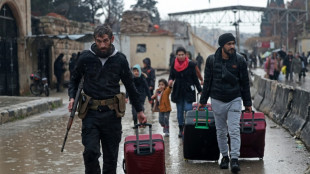 US urges fresh talks between Syria govt, Kurds after deadly clashes
US urges fresh talks between Syria govt, Kurds after deadly clashes
-
Weekend of US protests after woman killed by immigration agent

-
 Monaco cling on with 10 men to avoid French Cup shock
Monaco cling on with 10 men to avoid French Cup shock
-
Rooney close to tears as brother masterminds FA Cup history

-
 Semenyo scores on Man City debut in 10-goal rout of Exeter
Semenyo scores on Man City debut in 10-goal rout of Exeter
-
Villarreal sink Alaves to stay in La Liga hunt

-
 Bristol, Glasgow reach Champions Cup last 16
Bristol, Glasgow reach Champions Cup last 16
-
Freiburg beat 10-man Hamburg to climb to eighth in the Bundesliga

-
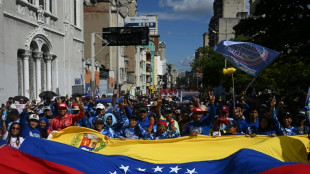 Venezuela loyalists to rally one week after Maduro's capture
Venezuela loyalists to rally one week after Maduro's capture
-
Syrian authorities transferring Kurdish fighters from Aleppo to northeast
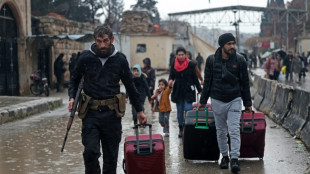
-
 Football: Five memorable FA Cup upsets
Football: Five memorable FA Cup upsets
-
Odermatt warms up for Winter Games with Adelboden giant slalom win

-
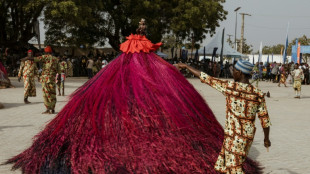 Benin showcases culture with Vodun Days
Benin showcases culture with Vodun Days
-
Iran crackdown fears grow as protests persist

-
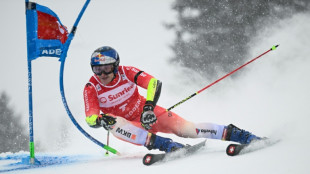 Odermatt wins Adelboden giant slalom for sixth World Cup success of season
Odermatt wins Adelboden giant slalom for sixth World Cup success of season
-
Holders Crystal Palace stunned by Macclesfield in biggest ever FA Cup shock

-
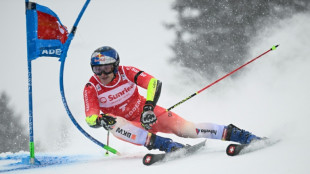 Odermatt wins Abelboden giant slalom for sixth World Cup success of season
Odermatt wins Abelboden giant slalom for sixth World Cup success of season
-
Poland reach United Cup final despite Swiatek loss to Gauff

-
 India's Gill calls it 'destiny' after shock T20 World Cup snub
India's Gill calls it 'destiny' after shock T20 World Cup snub
-
'Driven' Vonn storms to 84th World Cup win in Austrian downhill
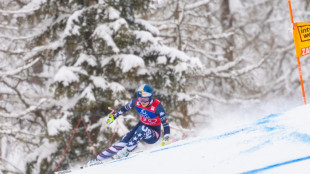
-
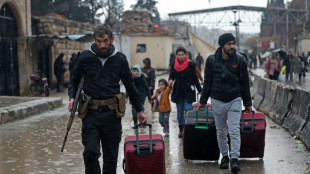 Syrian army says stopping Aleppo operations, but Kurds deny fighting over
Syrian army says stopping Aleppo operations, but Kurds deny fighting over
-
Thousands of Irish farmers protest EU-Mercosur trade deal

-
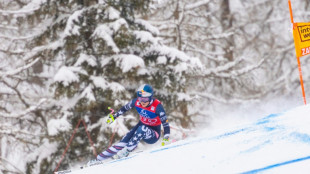 Vonn storms to 84th World Cup win in Austrian downhill
Vonn storms to 84th World Cup win in Austrian downhill
-
Anger over fatal Minneapolis shooting fuels US protests

-
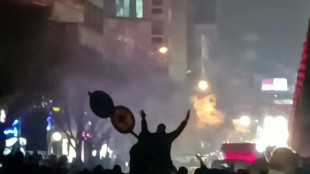 New rallies erupt in Iran as crackdown fears grow
New rallies erupt in Iran as crackdown fears grow
-
Real Madrid not 'kamikaze' with Mbappe health: Alonso

-
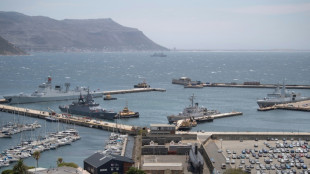 South Africa defends naval drills with Iran, Russia as 'essential'
South Africa defends naval drills with Iran, Russia as 'essential'
-
Alcaraz beats Sinner in sold-out South Korea exhibition match


Peril and promise: gas from 'killer lake' powers Rwanda
The engineers aboard the floating power station on Lake Kivu could only watch nervously as the volcano in the distance erupted violently, sending tremors rumbling throughthe water beneath them.
It was notthe lava shooting from Mount Nyiragongo last May that spooked them, but the enormous concentrations of potentially explosive gases within Kivu, one of Africa's great Rift lakes lying between Rwanda and the Democratic Republic of Congo.
Flanked by rolling green hills tumbling into glassy waters, Kivu is not quite the picture of tranquility it seems, according to Francois Darchambeau from KivuWatt, a company that extracts gas from the lake's waters for electricity.
Thousands of years of volcanic activity has caused a massive accumulation of methane and carbon dioxide to dissolve in the depths of Kivu -- enough to prove monumentally destructive in the rare event they were released.
If triggered, a so-called limnic eruption would cause "a huge explosion of gas from deep waters to the surface" resulting in large waves and a poisonous gas cloud that would put the lives of millions at risk, said Darchambeau, environmental manager at KivuWatt.
"This is what we call a killer lake," the limnologist, or an expert in freshwater systems, told AFP.
Only three such lakes exist in the world: Kivu, and Lakes Nyos and Monoun in northwest Cameroon.
The latter two experienced limnic eruptions in the 1980s, and the bigger disaster at Nyos suffocated more than 1,700 people in a toxic release of carbon dioxide.
But these catastrophes occurred in a rural area, whereas some two million people would be "at risk" of such a similar disaster involving Kivu, said Darchambeau.
In both Rwanda and DR Congo, many live in fear of the lake's harmful potential, and stories abound of swimmers disappearing into its depths after being asphyxiated or pulled under.
- World first -
The lake, however, poses both peril and promise.
KivuWatt, which says this is the only project of its kind anywhere in the world, saw an opportunity to tap these abundant gases for energy generation.
A 20-minute speedboat ride is required to reach KivuWatt's unique floating platform, a compact tangle of pipes and buoys as high as a multi-storey building moored in the Rwandan part of Kivu.
With a deafening roar, the facility pumps water saturated with carbon dioxide and methane from around 350 metres (1,150 feet) to the surface.
As it rises, the water and gas separate as the pressure changes.
"It is like opening a bottle of soda," said KivuWatt director Priysham Nundah, who described the project as "halfway between a thermal and a renewable energy plant".
The extracted methane is sent through a pipeline to a second facility located onshore in Rwanda, where the gas is transformed into electricity.
The carbon dioxide is pumped back into the lake at a precise enough depth to ensure the delicate balance is not upset.
The company says it hopes that removing methane could over time reduce pressure within the lake, possibly lowering the risk of a limnic eruption.
- 'It was frightening' -
But fears of such a disaster were reawakened when Nyiragongo -- an active volcano north of Kivu in DR Congo -- roared to life in early 2021.
The lava flow killed 32 people and destroyed hundreds of homes, as earthquakes shook the region. A second wave of lava pushed deep into the earth under the lake itself.
From their station, KivuWatt's engineers watched the sky turn red and angry.
"It was very frightening," said Nundah.
"When the rates of earthquakes and the frequency of earthquakes started to rise... no one could really say what would happen."
A shutdown was considered -- but the engineers held their nerve.
Suspending operations would have serious consequences for Rwanda: KivuWatt produces around 30 percent of the annual electricity consumed in the East African nation.
American company ContourGlobal, which owns KivuWatt, launched the Lake Kivu venture in 2015 and for a time considered expanding its capacity from 26 to 100 megawatts.
Another company is exploring the possibility of launching its own 56-megawatt gas extraction venture on the lake. There are no plans in the short term for such a project on the Congolese side.
How long it will take to deplete these vast gas reserves will depend on the pace of extraction, said Martin Schmid, a researcher at the Swiss Institute for Water and Environmental Research.
"Just with KivuWatt alone it will take, I don't know, centuries to have really a reduction of methane in the lake," he said.
S.AbuJamous--SF-PST
